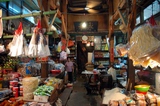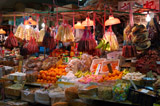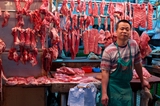- Old shops
In Hong Kong, many shops still carry out an outdoor business such barbers, noodle stall, street food restaurants ("Dai Pai Dong"), fortune teller, papercraft master, sewer shop, refreshment shop and so on...
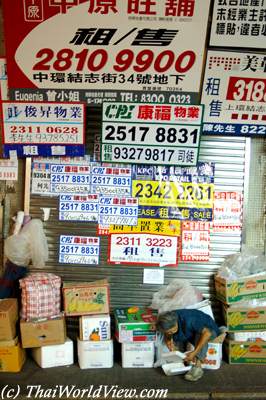
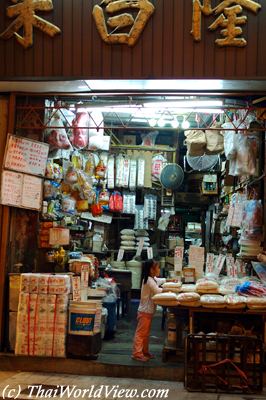
|
Wing Woo Ho grocery store has stood there for more than 70 years and the
building is even more than 100 years old. After redevelopment, only the external walls
of the building will be preserved.
|
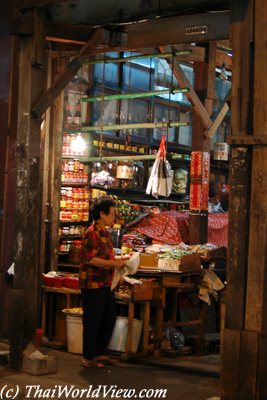
|
| Wing Woo Ho grocery store |
|---|
The grocery is selling rice, preserved vegetables, fresh eggs and chili sauce.
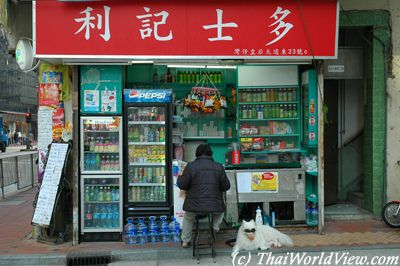
|
This refreshment store was located in Wan Chai. Such stores have many
business difficulties against 7-11 convenience stores.
|
| Wing Woo Ho grocery store |
|---|
|
Mr Ho Hee Kee, located in Sheung Wan, repair umbrellas since 40 years.
|
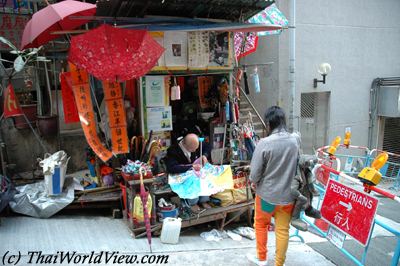
|
| Umbrella repair |
|---|
A wet market is generally an open food market. The floors and surroundings are often routinely sprayed and washed with water which gave it the name "wet market".
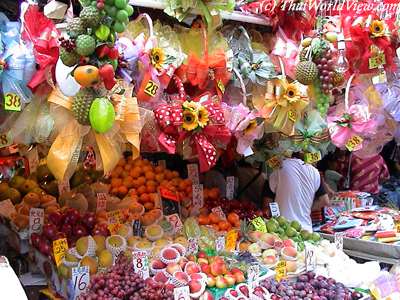
|
Fruits stalls prepare beautiful bunches of fruits that are offered during
various events such as Lunar New Year.
|
| Fruit stall |
|---|
|
Fruits found in Hong Kong are mainly coming from Yau Ma Tei Wholesale Fruit Market.
|
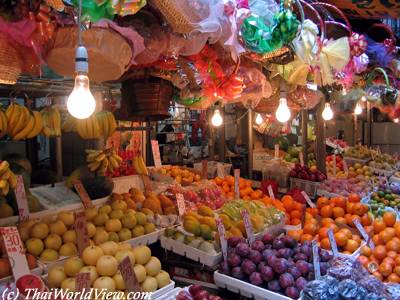
|
| Fruit stall |
|---|
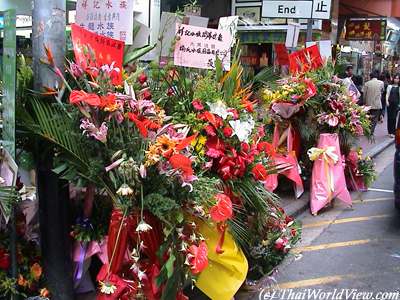
|
Flowers stalls prepare beautiful bunches of flowers that are offered when
a new shop is opened.
|
| Flowers stall |
|---|
|
Dried food is a local favourite food. Smell can be very strong when walking
close to these shops.
|
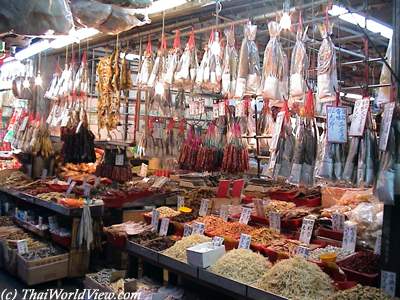
|
| Fruit stall |
|---|
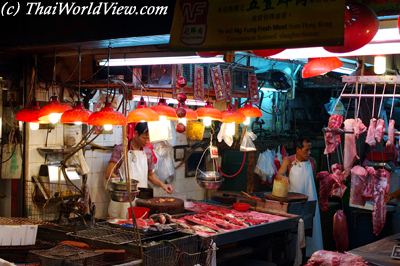
|
The higher hygiene standards of supermarkets have forced many wet markets
to operate indoors.
|
| Central wet market |
|---|
|
Wet market generally combine butcher shops and fish markets in the area.
|
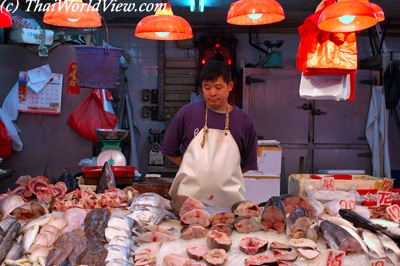
|
| Fisheries |
|---|
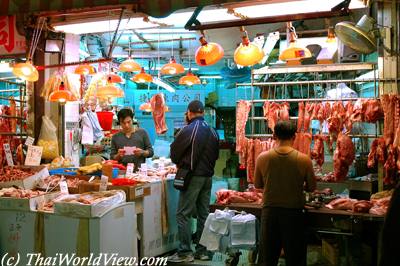
|
Wet market products are generally stored for short periods of time and
are always expected to be fresh.
|
| Butcher shop |
|---|
|
Market stalls are packed with local shoppers buying meat, fish and vegetables
for diner.
|
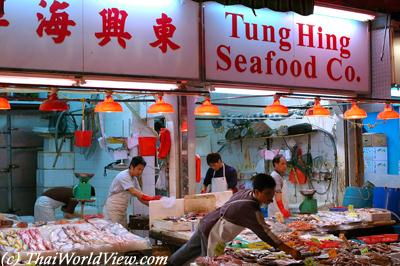
|
| Seafood stall |
|---|
In Hong Kong, there are public markets and street markets.
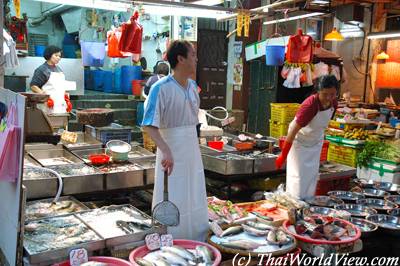
|
Bazaar workers work long hours (from 4am to 8pm) throughout the year.
|
| Seafood stall |
|---|
There are signs that the younger generation are not shopping at wet markets but choose to go to supermarkets. Supermarkets had cornered more than 30 per cent of the food market in Hong Kong.
|
Baazar workers tended to be old workers with fairly long careers in the trades.
Meat and seafood stalls are dominated by male workers, who are also younger in age compared
to the others.
|
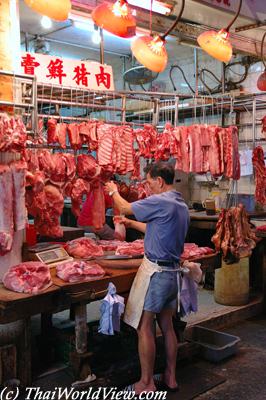
|
| Meat stall |
|---|
In year 2001 Hong Kong has more than 200 public wet markets.
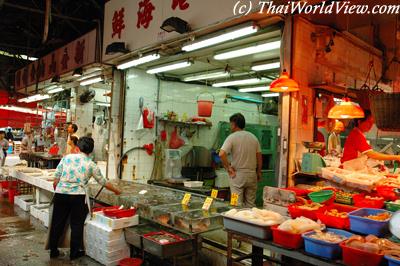
|
People still enjoy the traditional shopping experience in the wet markets.
Hygiene in many wet markets (air-conditioning installed) has improved to compete
with the two major supermarket chains, ParknShop and Wellcome.
|
| Market stalls |
|---|
|
Since year 2003, bird flu has caused big impact on
live chicken imports and poultry sales.
|
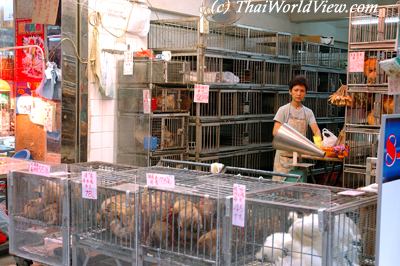
|
| Live poultry |
|---|
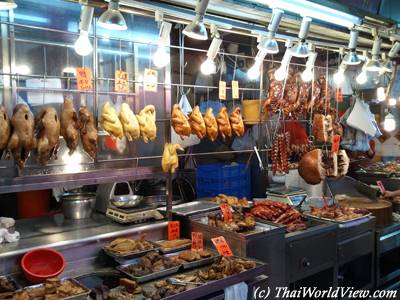
|
Traditional stalls include butcher, fisherman, flower seller, roasted food shop
including pork and duck dishes.
|
| Market stalls |
|---|
|
Markets are losing ground to supermarkets. The two supermarkets, Wellcome and Park’n’Shop,
now control more than 70% of the grocery sector.
|
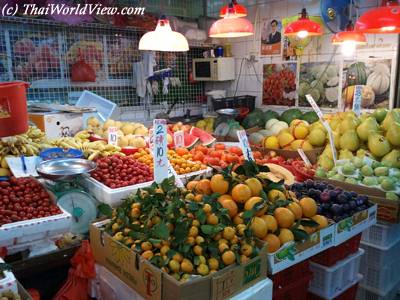
|
| Market stalls |
|---|
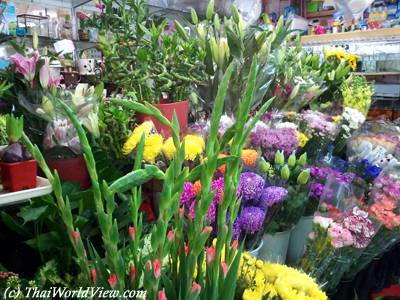
|
In public markets, out of every seven stalls is vacant. Many of Hong Kong’s
wet markets were built in the 1970s and 80s. Many of them need redesigns and renovation.
|
| Market stalls |
|---|
|
Hong Kong public wet markets are always worth visiting. The fluorescent lights
always make nice colors on the stalls.
|
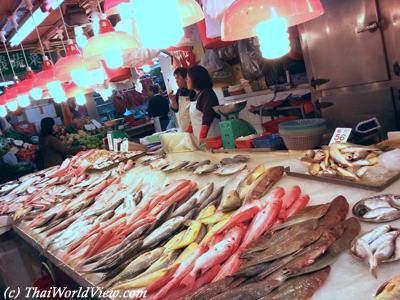
|
| Seafood stall |
|---|
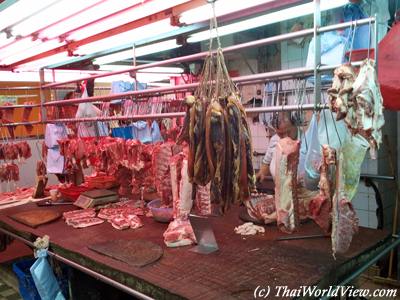
|
Expect strong smell when walking along the butcher stand. Meat is often
boiled so there is no hygiene risk.
|
| Market stalls |
|---|
|
Fishes, shrimps and seashells are always alive in aquariums.
Fishes are also kept in a lot of ice.
|
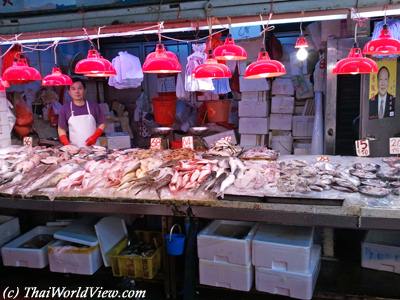
|
| Seafood stall |
|---|
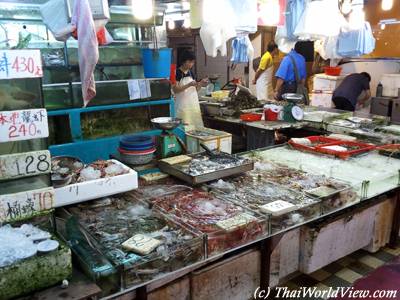
|
They are around 200 public wet market in Hong Kong. Most of them
are located indoor near big estates.
|
| Market stalls |
|---|
|
In Hong Kong bamboo is legal and is still used in a vast majority of
construction projects.
|
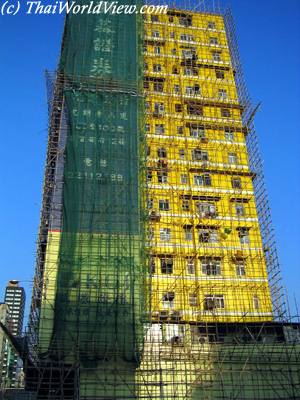
|
| Bamboo scaffold |
|---|
The Chinese mainland has banned the use of such scaffolds on buildings taller than six stories because of fears that the quality of bamboo has deteriorated in recent years.
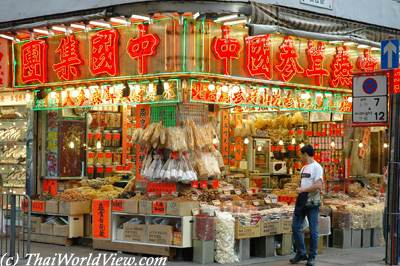
|
Selling dried seafood has become a tradition.
The customers are mainly middle-aged and elderly people.
|
| Dried Seafood shop |
|---|
|
Eating crab is immensely popular in Hong Kong.
This shop is selling Shanghainese hairy crabs. They were still alive and not cooked yet.
They are available for a short period during the fall season.
|
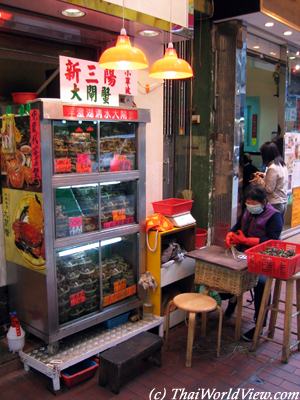
|
| Crabs shop |
|---|
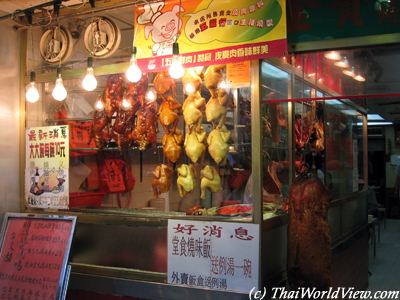
|
In local Chinese eateries, roasted duck, BBQ pork and
chicken on rice are popular dishes.
|
| Local Chinese restaurant |
|---|

